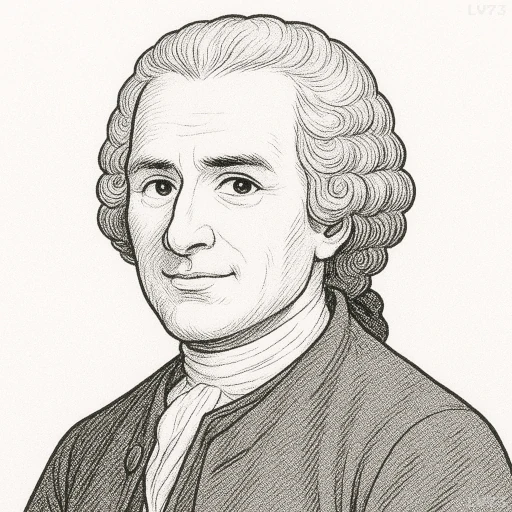“Man was born free, and he is everywhere in chains.”

- June 28, 1712 – July 2, 1778
- Born in Geneva
- Philosopher, political philosopher, writer, composer
table of contents
Quote
“Man was born free, and he is everywhere in chains.”
Explanation
This famous quote from Jean-Jacques Rousseau encapsulates his central critique of society and its institutions. Rousseau begins by asserting that human beings are born with freedom as their natural state. In his view, humans in their primitive state—before the rise of civilization—were free, independent, and equal. However, as societies and social contracts formed, humans became bound by the rules, laws, and expectations of society, which he metaphorically refers to as “chains.” These “chains” represent the restrictions placed on individual freedom by political systems, social norms, and economic structures that Rousseau believed led to inequality and corruption.
Historically, this quote reflects Rousseau’s ideas in his landmark work The Social Contract, where he explores the tension between individual liberty and the authority of the state. Rousseau argued that while society was meant to organize human life for the common good, it instead often led to inequality and oppression. He famously proposed the idea of a social contract where individuals would collectively agree to form a society based on general will and common interests, but he warned that the structures of government could easily enslave individuals rather than set them free. This critique was radical at the time, especially in a period of rigid monarchies and class systems, and helped fuel the intellectual currents that would later inspire the French Revolution.
In modern times, this quote continues to resonate, particularly in discussions of freedom and individual rights. In contemporary society, people may still feel “in chains” due to economic pressures, social expectations, political systems, and cultural norms. Issues such as social inequality, political oppression, and surveillance highlight how individuals may feel constrained by larger societal forces. Rousseau’s idea challenges us to reflect on the balance between personal liberty and the need for social order, urging a reevaluation of how modern systems might limit or enhance our freedom.
Would you like to share your impressions or related stories about this quote in the comments section?

